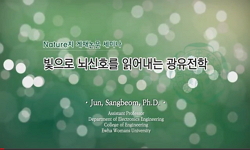告子與孟子對於人性的論辯一直是哲學史上的重要議題, 朱子對於孟告之辯的評論是, 孟子知性之爲理, 故爲正說;評論告子認氣爲性, 故不知性。然船山在哲學史上亦屬氣學之說。故船山對於...
http://chineseinput.net/에서 pinyin(병음)방식으로 중국어를 변환할 수 있습니다.
변환된 중국어를 복사하여 사용하시면 됩니다.
- 中文 을 입력하시려면 zhongwen을 입력하시고 space를누르시면됩니다.
- 北京 을 입력하시려면 beijing을 입력하시고 space를 누르시면 됩니다.


王船山對宋儒朱子主張‘告子認氣爲性’之反省—─孟告之辯的詮釋 = Reflection of Wang Chuan-shan on “Gaozi treats qi as nature” Suggested by Zhu Xi: Interpretation on the Debate between Gaozi and Mencius
한글로보기부가정보
다국어 초록 (Multilingual Abstract)
告子與孟子對於人性的論辯一直是哲學史上的重要議題, 朱子對於孟告之辯的評論是, 孟子知性之爲理, 故爲正說;評論告子認氣爲性, 故不知性。然船山在哲學史上亦屬氣學之說。故船山對於氣說護航, 然船山學還是以孟子爲正, 故重新以氣學的方式, 對朱子的詮釋提出質疑;一方面認爲朱子視告子的認氣爲性之說是有誤的。因爲若真能懂氣, 則能懂性。然也並不因此即視告子爲正統, 一方面他亦指出告子之失, 失於只識氣之用, 而不識氣之體;另一方面, 認爲告子以具象物喻性, 則爲不知性。然孟子亦以物喻性, 而船山於此間, 如何折合孟子之喻爲正、而告子之喻不正, 乃本文所要處理的問題。最後船山視告子以情才爲性, 都是不知性, 而不能談到性之至善;因爲情、才可善可惡, 而不到性善之層次。吾人認爲船山與朱子對於氣的定義實有不同, 故於文中申論之。
다국어 초록 (Multilingual Abstract)
The debate between Gaozi and Mencius on humanity has been an important issue in the intellectual history of Chinese Philosophy. Zhu Xi understands that Mencius correctly treated nature as li, whereas Gaozi incorrectly regarded qi as nature because he ...
The debate between Gaozi and Mencius on humanity has been an important issue in the intellectual history of Chinese Philosophy. Zhu Xi understands that Mencius correctly treated nature as li, whereas Gaozi incorrectly regarded qi as nature because he did not understand nature properly. On the other hand, the thought of Wang Chuan-shan belongs to the school of thought based on the theory of qi. Wang also understands that Mencius’s idea is correct, though he offers different understanding of the debate from the perspective of the theory of qi and questions Zhu Xi’s understanding. On the one hand, Wang thinks that Zhu Xi incorrectly understands that Gaozi regarded qi as nature, for he thinks that proper understanding of qi leads to proper understanding of nature. However, Wang also points out that Gaozi merely understood the function of qi, but he did not properly understand the underlying substance of qi. On the other hand, for Wang, Zhu Xi misunderstands that Gaozi understood nature metaphorically in terms of concrete objects in the world, so that he did not understand nature at all. However, Mencius in fact also understood nature metaphorically in terms of concrete objects in the actual world. For this reason, the question raised in this paper is on what basis Wang can think that Mencius’s metaphor is correct, whereas Gaozi’s metaphor is wrong. Finally, Wang suggests that Gaozi regarded affection as nature, and therefore he did not understand nature and could not suggest the highest goodness of nature. This paper suggests that Wang Chuan-shan and Zhu Xi define qi differently.
참고문헌 (Reference)
1 沈善洪, "黃宗羲全集" 浙江古籍出版社 2005
2 陸九淵, "陸九淵集" 中華書局 1980
3 王夫之, "船山全書" 岳麓書社 1996
4 陳啟文, "王船山兩端而一致之思維的辯證性及其開展" 師範大學國文所 2006
5 林安梧, "王船山人性史哲學之研究" 東大圖書股份有限公司 1991
6 徐世昌, "清儒學案" 中華書局 2008
7 黎靖德, "朱子語類" 文津出版社 1986
8 戴震, "戴震集" 上海古籍出版社 1980
9 牟宗三, "心體與性體(三)" 正中書局 1969
10 丁爲祥, "學術性格與思想譜系-朱子的哲學視野及其歷史影響的發生學考察" 人民出版社 2012
1 沈善洪, "黃宗羲全集" 浙江古籍出版社 2005
2 陸九淵, "陸九淵集" 中華書局 1980
3 王夫之, "船山全書" 岳麓書社 1996
4 陳啟文, "王船山兩端而一致之思維的辯證性及其開展" 師範大學國文所 2006
5 林安梧, "王船山人性史哲學之研究" 東大圖書股份有限公司 1991
6 徐世昌, "清儒學案" 中華書局 2008
7 黎靖德, "朱子語類" 文津出版社 1986
8 戴震, "戴震集" 上海古籍出版社 1980
9 牟宗三, "心體與性體(三)" 正中書局 1969
10 丁爲祥, "學術性格與思想譜系-朱子的哲學視野及其歷史影響的發生學考察" 人民出版社 2012
11 周兵, "天人之際的理學新詮釋-王夫之《讀四書大全說》思想研究" 巴蜀書社 2006
12 牟宗三, "圓善論" 學生書局 1985
13 朱子, "四書章句集注" 鵝湖出版社 1984
14 胡廣, "四書大全" 臺灣商務印書館 1986
15 唐君毅, "哲學論集" 臺灣學生書局 1990
16 錢穆, "中國近三百年學術史" 台灣商務印書館 1980
17 唐君毅, "中國哲學原論‧原教篇" 臺灣學生書局 1984
18 唐君毅, "中國哲學原論‧原性篇" 臺灣學生書局 1990
동일학술지(권/호) 다른 논문
-
- 성균관대학교 유교문화연구소
- 남상호
- 2014
- KCI등재,SCOPUS
-
- 성균관대학교 유교문화연구소
- 안유경
- 2014
- KCI등재,SCOPUS
-
Jeong Jedu’s Theory of the Four Beginnings and Seven Feelings
- 성균관대학교 유교문화연구소
- 김윤경
- 2014
- KCI등재,SCOPUS
-
Yulgok's Moral Emotion Theory: A Reflection on the Foundation of Normativity
- 성균관대학교 유교문화연구소
- 김경호
- 2014
- KCI등재,SCOPUS
분석정보
인용정보 인용지수 설명보기
학술지 이력
| 연월일 | 이력구분 | 이력상세 | 등재구분 |
|---|---|---|---|
| 2027 | 평가예정 | 재인증평가 신청대상 (재인증) | |
| 2021-01-01 | 평가 | 등재학술지 유지 (재인증) |  |
| 2018-12-20 | 학술지명변경 | 한글명 : 國際版<儒敎文化硏究> -> Journal of Confucian Philosophy and Culture외국어명 : 미등록 -> Journal of Confucian Philosophy and Culture |  |
| 2018-01-01 | 평가 | 등재학술지 유지 (등재유지) |  |
| 2015-01-01 | 평가 | 등재학술지 유지 (등재유지) |  |
| 2011-06-13 | 학회명변경 | 영문명 : Institute of Confucian Cultural Studies -> Institute of Confucian Philosophy and Culture |  |
| 2011-01-01 | 평가 | 등재학술지 선정 (등재후보2차) |  |
| 2010-01-01 | 평가 | 등재후보 1차 PASS (등재후보1차) |  |
| 2008-01-01 | 평가 | 등재후보학술지 선정 (신규평가) |  |
학술지 인용정보
| 기준연도 | WOS-KCI 통합IF(2년) | KCIF(2년) | KCIF(3년) |
|---|---|---|---|
| 2016 | 0.1 | 0.1 | 0.08 |
| KCIF(4년) | KCIF(5년) | 중심성지수(3년) | 즉시성지수 |
| 0.06 | 0.04 | 0.351 | 0.1 |




 DBpia
DBpia





